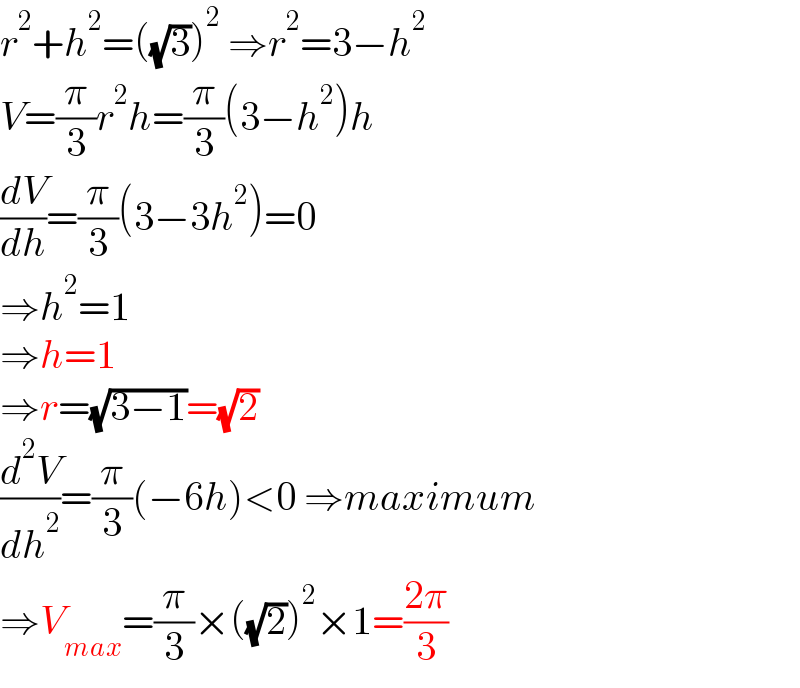
Question and Answers Forum
Question Number 131960 by liberty last updated on 10/Feb/21

Answered by mr W last updated on 10/Feb/21

Commented by otchereabdullai@gmail.com last updated on 10/Feb/21

Commented by liberty last updated on 10/Feb/21

| ||
Question and Answers Forum | ||
Question Number 131960 by liberty last updated on 10/Feb/21 | ||
 | ||
Answered by mr W last updated on 10/Feb/21 | ||
 | ||
| ||
Commented by otchereabdullai@gmail.com last updated on 10/Feb/21 | ||
 | ||
Commented by liberty last updated on 10/Feb/21 | ||
 | ||